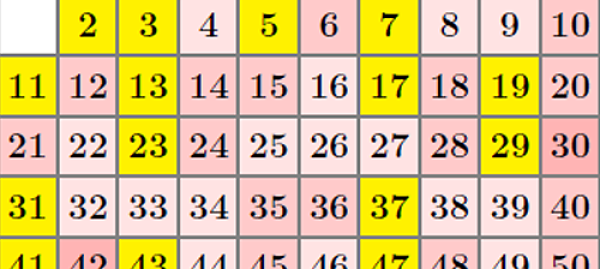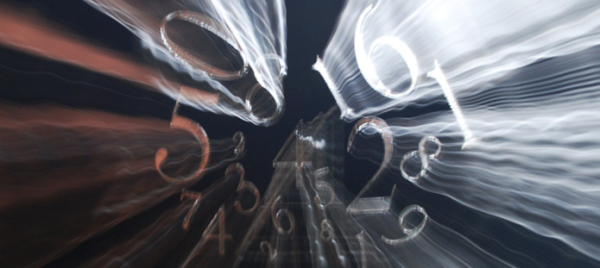MA251 - Number Theory
A careful study of major topics in elementary number theory, including divisibility, factorization, prime numbers, perfect numbers, congruences, Diophantine equations and primitive roots. Meets the Critical Perspectives: Quantitative Reasoning requirement. Meets the Critical Learning: FRL requirement.
Prerequisite: Any two of: Mathematics 117, Mathematics 217, Mathematics 120, Mathematics 125, Mathematics 126. Mathematics 129 or equivalent.
Degree requirement — Critical Learning: FRL, Critical Perspectives: Q
1 unit — Erickson, Malmskog
Previously Featured Offering


The course concentrates on surprising and beautiful results about the integers . . . -2, -1, 0, 1, 2, 3, … . Euclid in ancient Greece first proved that each integer greater than 1 can be factored uniquely into primes, integers that cannot be further factored. Euclid also proved that there are infinitely many primes, which is only the beginning of the many profound questions about the primes (2, 3, 5, 7, 11, ...) that have still not been answered, despite the antiquity of the subject. For example, are there infinitely many Twin Primes, like 3 and 5, 5 and 7, 11 and 13, 17 and 19 and so?
Interestingly, many modern methods of cryptography are constructed using the methods learned in MA251. Number theory is not only elegant and beautiful, but applicable too!
Offerings
| Term | Block | Title | Instructor | Location | Student Limit/Available | Updated |
|---|---|---|---|---|---|---|
| Spring 2025 | Block 5 | Number Theory | Stefan Erickson | Tutt Science Building 223 | 25 / 6 | 07/19/2025 |
| Fall 2025 | Block 1 | Number Theory | Beth Malmskog | TBA | 25 / 13 | 07/19/2025 |
| Spring 2026 | Block 5 | Number Theory | Stefan Erickson | TBA | 25 / 25 | 07/19/2025 |



